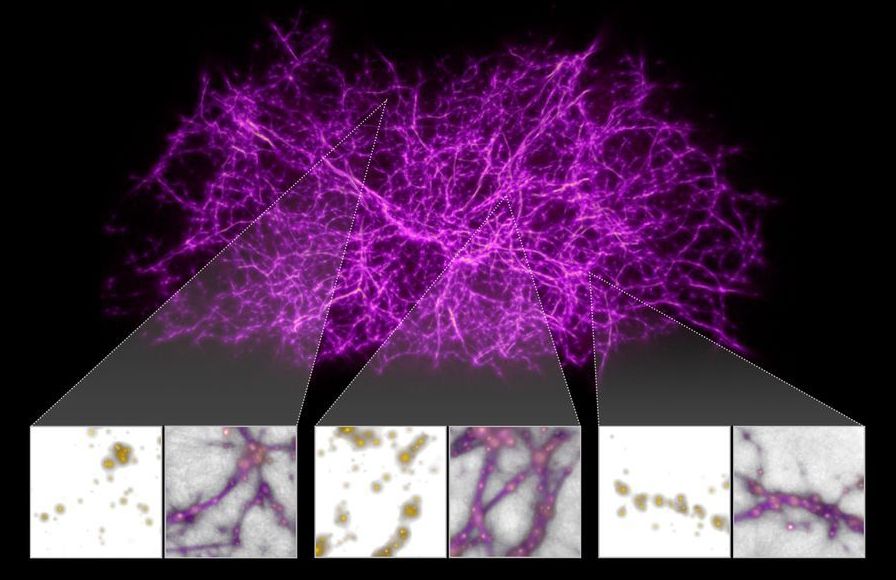Using data from the Hubble Space Telescope’s Cosmic Origins Spectrograph, the team was able to observe the distinctive absorption signature in the spectrum of light that passes through it, and the sight-lines of hundreds of distant quasars that pierce the volume of space occupied by the SDSS galaxies, says the university.
This lowly slime mold does a good job of characterizing the large-scale structure of the Universe over a wide range of scale, Burchett told me.
“I see how it works from a mathematical and [topological] perspective, but that doesn’t diminish my continued amazement that the slime mold-inspired method handles this difficult problem so elegantly and efficiently,” Burchett told me.
